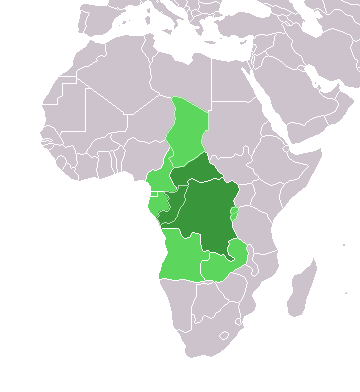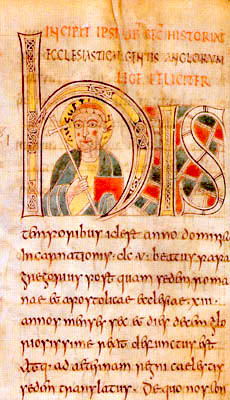In the Gap
Lent Sunday 5 (B) (25 Mar 2012)
Homily of Fr. Paul Panaretos, S.J.
After Jesus raised Lazarus from the dead, two groups of people sought to be in Jesus’ presence. The first were Jewish people, who had heard that [Jesus] had done [that] sign. They went to meet Jesus as he entered Jerusalem from nearby Bethany, where Lazarus lived.1
The second group were some gentiles, who were in the process of converting to Judaism—Greeks, as the Fourth Gospel named them.2 They were in Jerusalem for the Passover feast and surely heard of the sign Jesus had most recently performed. Some of them approached Philip, as we heard, hoping to see Jesus.
Did they want only to look at Jesus, who raised Lazarus, an action that catapulted Jesus to celebrity status? Did they want a face-to-face with Jesus as we mean when we went to see the boss or the doctor or the priest? In the Fourth Gospel’s symbolic language to see also means to believe. In its opening chapter, disciples of the Baptizer heard him call Jesus the Lamb of God and followed Jesus. When they ask Jesus where he lives, Jesus says, Come and see. They wanted to know in a personal way. So the Greeks: they stand for us, inspiring us to deepen our desire to meet Jesus as our Messiah not as an abstract, dead rabbi, unconcerned about us.
In the action of the gospel Jesus was concerned to fulfill his mission, to draw everyone to [him]self and through him to his Father. Andrew and Phillip...told Jesus about the request to see him. Up to then very few responded to Jesus’ words and signs; even the disciples’ trust in him was shaky. Hostile suspicion greeted what Jesus had said and done until then. Jesus could have been tempted by the request: are some at last going to honor God because of what I am doing? Honor, after all, lay at the core of Middle Eastern culture.
If we enter the gap between Andrew and Phillip…[telling] Jesus of the Greeks’ request and Jesus’ response—not apparent in the text: Andrew and Phillip tell and Jesus seemed not to respond to the request—in that gap Jesus resolved to remain true to his mission, which he had received from his Father. Because we know Jesus is the Messiah, we may pass over that gap rather than enter it. Our mission, as members of risen Jesus’ body, is to draw others closer in his company. We do that by keeping ourselves close to Jesus.
Jesus’ words about himself, unless a grain of wheat falls to the ground and dies, it remains just a grain of wheat; but if it dies, it produces much fruit, also describe us and our Catholic mission. His words give us courage when we are in the gaps each time we resolve anew to give ourselves to our Catholic mission. To think that everything revolves around us and to behave as if it does are not to live our Catholic mission. Lent renews us in our mission by inviting us to give ourselves to showing mercy, fasting and making prayer personal not merely automatic. “Any time is the right time [to do those],” reminded Pope St. Leo, “but these days of Lent provide a special encouragement.”3
You and I meet Jesus and deepen our relationship with him in showing mercy, fasting, making prayer personal, in word, in sacrament, in serving and in being served, in all human relationships. Meeting Jesus in word, in sacrament, in prayer, in serving and in being served and in other ways begins to change our minds and our hearts. Meeting Jesus is the beginning of conversion.
Conversion is about letting die what keeps us distant from Jesus, from ourselves and others and cultivating the fruit, which offers itself: keeping close to Jesus and being honest with ourselves and others.
We will never know what moved the Greeks in the Fourth Gospel to draw near to Jesus, but they did, and they expressed their request to Jesus’ disciple. We do know what moves us. Allowing to die what keeps us from giving ourselves to meeting and believing Jesus opens us to receive the fruit of a new self. Becoming new, becoming a more courageous disciple, Jesus enfolds us with his true and lasting honor, which we call glory.
In your daily 15 minutes with Jesus this week
- Allow yourself to feel the Trinity creating you.
- Ask the gentiles, who came to worship at the Passover feast, to present you to Jesus.
- Name turning points in your life and tell Jesus how you have been transformed and continue to live that transformation; tell Jesus the one thing you need to do to continue to transform.
- Ask Jesus to give you the grace and strength to do that: to die so to rise anew, to see his challenge as your hope for the honor and glory of new life.
- Close by saying slowly the Lord’s Prayer, which helps us grow more in the image of our Messiah, Savior and Lord.
___________
- See John 12.17-18.
- This gospel did not use this word in a “national” sense; plus, Greek was the common world language. The disciples seemed to have used the word this way in John 7.35.
- His Sermon 10 in Quadragesima; 4th Lenten Tuesday, Office of Readings, Liturgy of the Hours.
_________________________________________________________________


















